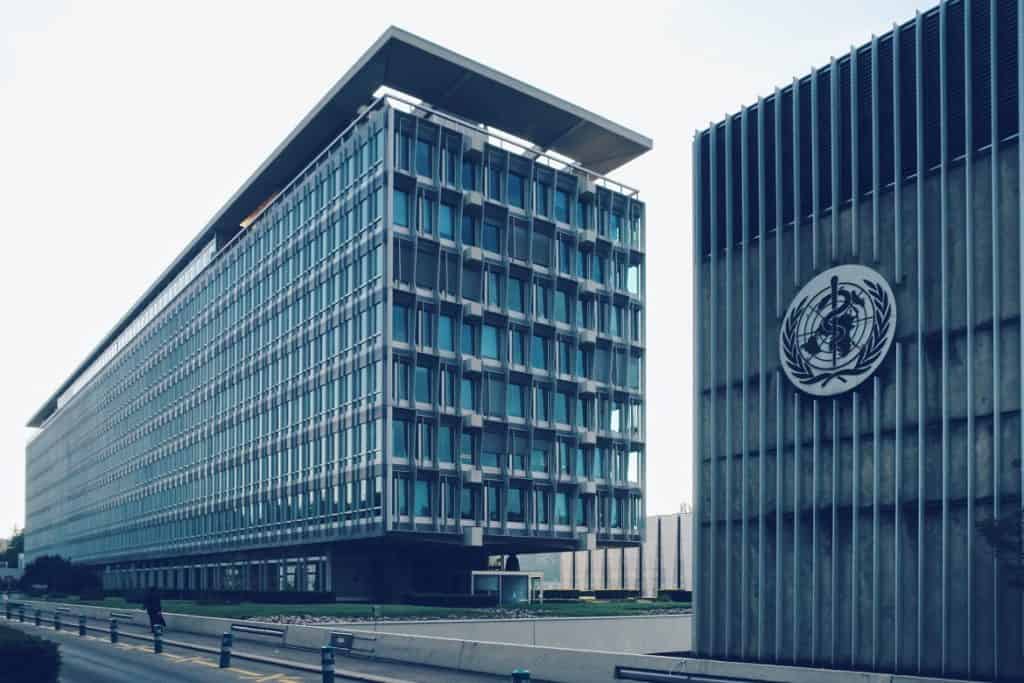By María Isabel Niño-Rada (Presidential Counseling for Human Rights and International Affairs)
Throughout history, crises have determined the future of societies: at times they have transformed the reality of what is known, reinventing the future with new ways of responding to adversity.
 A clear example turns out to be the Second World War, with its unprecedented military and arms deployment, which generated consequences of such magnitude in societies that the great powers have not resorted to armed struggle as an instrument for conflict resolution, at least for now.
A clear example turns out to be the Second World War, with its unprecedented military and arms deployment, which generated consequences of such magnitude in societies that the great powers have not resorted to armed struggle as an instrument for conflict resolution, at least for now.
The transformative facet of the crisis defined the future of the world after World War II, seeing how the dynamics between the powers behaved differently in the Cold War, in which the liberal triumph and deployment of the West were achieved through deterrence and not through direct armed attack to opponents.
At other times, the crisis tends to exacerbate the underlying problems that existed prior to it, making it more difficult to manage the crisis itself, but it also becomes an opportunity to rethink the way things are being done. The crisis we are facing as a result of Covid-19 makes this situation evident: the problems of poverty and inequality before the pandemic have multiplied exponentially, leaving traditionally disadvantaged groups unprotected, and the inclusion policies that societies have been asking for historically, are lacking in the management of this pandemic.
The Covid-19 crisis is unique for many reasons: despite scientific and technological advances, it made us rethink the way in which states and societies approach public health problems to an extraordinary magnitude.
Although there has been so much information and access to medical and technological tools as never before in history, we have not yet been able to control this crisis, which poses great challenges for the world we live in. Likewise, the phenomenon of globalization played an important role in the spread of the pandemic as it had never been seen before.
The particularity of the crisis we are going through generates many questions regarding the role that states have assumed to counter it. States can respond either through a policy of fear, which among other things leads to a centralization of power and isolation from the International System as proof that States can cope with the crisis on their own and do not need international cooperation for their survival.
On the other hand, States could consider this crisis as a challenge and an opportunity to build better societies in response to the pandemic and to the future. In this scenario, the authoritarian powers begin to rethink the importance of multilateralism, cooperation and solidarity between States to respond to the crisis.
It is clear that from the realistic perspective of international relations, which emphasizes the role of the state, national interest, and military power in world politics; internal legitimation becomes more relevant and the power of each State as self-sufficient overcomes multilateralism and collective solutions. A clear example has been the behavior of the United States which, contrary to its role of protector of other states in crisis such as the Cold War, has isolated itself from any multilateral solution to respond to the Covid-19 crisis, being the most evident sample its withdrawal from the World Health Organization.
It is worrying that one of the leading countries in medical and scientific research has adopted such a stance, since in the face of the development of a vaccine it is unpredictable to know if the United States has the will to share it as a global public good and a necessary commodity for the survival of all the human race.
Apparently this is not the position of other States that have also made advances in vaccines for the virus, but it is impossible to know what can happen when there is still no winner in this race against time.
While it is clear that each government is called to take actions to protect its citizens from the effects of this pandemic, on the other hand it has been seen that many of them have the will to cooperate with each other and to provide solidarity to countries less protected against to this crisis.
Multilateralism as a characteristic feature of liberal theory, which is a cluster of ideas derived from the belief that international progress is possible with increasing levels of harmonious cooperation between political communities; has been widely defended by international organizations that have responded to this crisis and has been embraced by many States.
However, the conflicting nature of the International System has shown so far that global coordination to respond to this crisis has been impossible, as has happened with many others, which leaves broad questions as to what is the best response to the pandemic. It is not possible to know if the strengthening of the internal power of the States will worsen the crisis or if multilateralism will definitively resolve it, what is clear at the moment is that there are more questions than solutions in the uncertainty of this crisis.
Author: María Isabel Niño Rada (Professional Specialized in Presidential Council for Human Rights and International Affairs; Lawyer and professional in International Relations from the Universidad del Rosario, Colombia; Diploma in International Protection of the Human Rights of Women from the Universidad Austral, Argentina. She is currently enrolled in a Postgraduate degree in Constitutional Law at the Pontificia Universidad Javeriana. Bogotá D.C. Area, Colombia)
(The views expressed in this article belong only to the author and do not necessarily reflect the views of World Geostrategic Insights)







